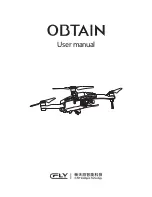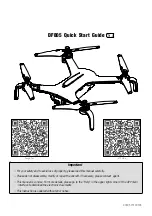
• Do not use the battery in strong electrostatic or electromagnetic environments.
Electrostatic or electromagnetic interference may lead to serious accidents
during flight.
•
The heavier the payload, the shorter the flight time, as more battery power
may be consumed.
• Remove the battery from the aircraft immediately if the aircraft falls into
water during flight. Leave the battery in an open area and keep a safe
distance away until it is completely dry. Stop using the battery and contact
Autel Robotics customer support for a replacement.
Battery Charging
• Do not use a damaged battery charger.
• Disconnect the charger when not in use and examine the charger’s condition
regularly.
• Do not leave the battery unattended during the charging process.
• Do not charge the battery immediately after using it, as overheat protection
will be activated to prevent the battery from being charged before it cools
down completely.
• The charging time varies depending on the remaining battery level.
• Since over charging may shorten the battery life, stop charging the battery
after it is fully charged.
• Make sure to go through a charge cycle (charging the battery to 100% and
then discharging it to 7% or lower) every three months, or once the battery
is cycle-charged for 20 times.
Battery Storage
• Keep the battery out of reach of children and pets.
• Do not leave the battery close to moisture or heat sources. Store the battery
in a dry and ventilated area at room temperature (ideally 22°C to 28°C).
• Do not place the battery beside hard or sharp items, or on a conductive
surface (e.g., metal plate).
• Do not place the battery in wet grass or in the pocket with metal objects.
• Disconnect and remove the Li-Po battery from the aircraft after use to
prevent trickle discharge. During storage, make sure the battery level does
not fall below 3V.
• Using or storing the battery in extreme environments may reduce battery life.
• Battery life inevitably shortens over time. And battery life may be reduced if
the battery is left unused over extended periods of time.
• Completely discharge the battery before disposal.
•
Dispose of the battery properly at specified battery recycling locations.
• Battery electrolytes are highly corrosive. If any electrolytes make contact
































